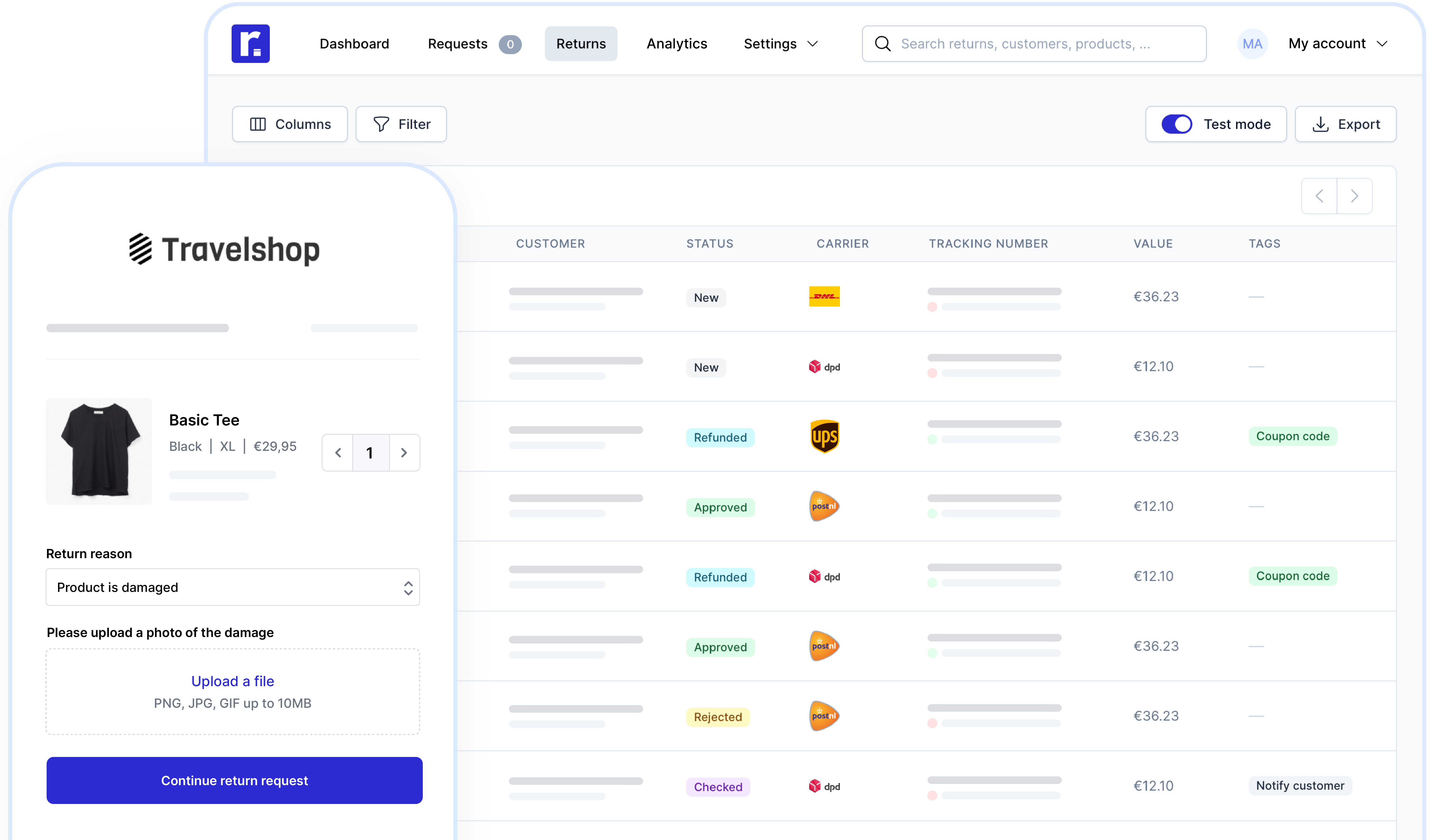
Autor
Ezra van Hassel
Date
27 March 2024
Category
Tips
distance selling: what are the rights?
Distance selling: As an online retailer, you are undoubtedly familiar with this term. It means a purchase is made without personal contact between buyer and seller. Because a consumer cannot judge the product directly, the European Union has established specific distance selling guidelines. Among other things, this gives a buyer the right to return the product within a legally established return period, without giving reasons. In addition, the seller is obliged to provide sufficient and correct information about the product so that the buyer can make an informed purchase decision.
Want to know what the rules on distance selling mean for you as a merchant? Then keep reading. In this article you will find information on what exactly constitutes distance selling and the specific rules you need to take into account.
What is distance selling?
With distance purchases, there is no personal and physical contact between the buyer and seller during the transaction. Examples include online purchases, telephone orders or purchases through a catalog or newspaper. Distance buying is defined as a transaction involving a remote agreement and a consumer purchase. Here, the selling party is a professional party (company) and the purchasing party is a private individual (consumer). Second-hand purchases via platforms such as Marktplaats, Vinted and eBay are not included. Purchases made in the course of business or professional activities, also known as B2B transactions, are also excluded.
The most common form of distance selling today is an online purchase: nearly 8 in 10 people in the Netherlands shopped online last year. So let's take a look at what distance buying means for e-commerce and what laws and regulations online retailers face when it comes to distance buying.
Distance selling law article
Because consumers cannot physically examine the products when buying at a distance, the European Union has established specific directives in order to protect the buying party. These directives are part of the Consumer Rights Directive introduced by the European Parliament in 2011 and have been incorporated into the Civil Code in the Netherlands since 2014.
There are two specific legal provisions related to distance selling: the right of withdrawal and the right to information. The right of withdrawal allows consumers to cancel a purchase agreement within two weeks, entitling them to a full refund of the purchase price, including any shipping costs. In addition, online retailers are required to provide consumers with detailed information via their websites about the price, product specifications, payment method and delivery and performance of the purchase agreement.
Reflection period for distance selling
The right of withdrawal in distance selling includes a legally established cooling-off period of 14 days, during which the consumer can return the product without giving reasons. The cooling-off period must be clearly stated on the website, otherwise it is automatically extended by up to 12 months from the date of delivery. Thus, if properly stated online, the consumer has the right to register the order - in whole or in part - for return for 14 calendar days after receiving the goods. After the return registration, the consumer has another 14 calendar days to actually return the product to the seller. Upon receipt, the seller must refund the consumer the full purchase price, including any shipping costs.
That sounds like a lot of work, but it doesn't have to be! With Returnless' return solution, automate your workflows and use smart rules to ensure that the right of withdrawal is automatically applied.
Examples of distance selling
With distance sales, the consumer does not have face-to-face contact with the seller. These include purchases through a mail order company, telephone orders and purchases with an order form, voucher or coupon, for example from a magazine or catalog. Online shopping also lacks personal contact between the parties because the transaction takes place via a computer, smartphone or tablet. Therefore, online purchases through merchants or marketplaces such as Amazon, Coolblue and bol.com also are a part of distance sales.
A major disadvantage of distance selling is the more complex return process. Returning purchases from an online store requires more time and management than when the consumer simply goes to the store and returns the item. With an online return, a return label must be created, the return must be checked and processed in the system. A digital return form makes this process significantly easier both for you internally and for your customers.
Nonexamples of distance selling
All sales that do involve direct contact between buyer and seller are not regarded as distance sales. The most well-known is the purchase of products in a physical store. The second criterion for distance selling is the so-called consumer purchase. Online purchases from a private individual are therefore also not covered by distance selling. For example, when a private individual buys a second-hand sofa from another private individual via Marktplaats, Vinted or eBay.
Other categories to which distance selling does not apply:
- Purchases from a vending machine, for example, a can of soda or a train ticket.
- Travel, vacations and other leisure activities.
- Subscriptions to newspapers, magazines and streaming services.
- Buying real estate
- Financial services, social services and health care
However, there are exceptions to the legal return period for certain transactions that do fall under distance selling. These exceptions apply, for example, to perishable or personalized products and items with broken seals such as hygiene products or media.
Distance selling rules
As an online retailer, you are required by law to adequately inform your customers, for example, about the return period and return policy. It is also mandatory to make a form available on your website for customers to cancel their purchase. Are your products excluded from the right of withdrawal? Then it is important to communicate this clearly on your website. If you do not comply with the information requirement, the return period is automatically extended by 12 months.
Need help setting up your webshop's return policy? Returnless' solution offers a fully digital and automated returns portal that allows you to easily manage the entire returns process. This not only gives you more control over your returns, but also ensures you meet all legal requirements around distance selling.
get started for free.
Play around and test out all features for free. Or schedule a demo with one of our colleagues if you'd like more info first.

